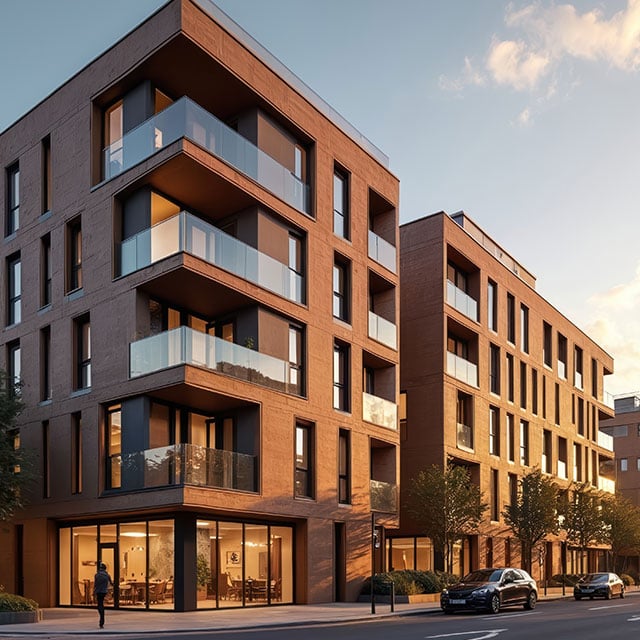On October 7, 2025, the Government of British Columbia tabled Bill 20, the Construction Prompt Payment Act, to enact prompt payment legislation for construction projects. BC is the latest province in Canada to introduce prompt payment legislation and, if enacted, it will significantly reform payment practices and the resolution of disputes on construction projects in ways that all owners, contractors and subcontractors need to be aware of.
What is Prompt Payment Legislation?
Payments on construction projects typically flow downwards in the shape of a pyramid. An owner pays its contractor; the contractor pays its subcontractors; and the subcontractors pay their own sub-subcontractors.
When there is a payment dispute at any level of this pyramid, every level below it can be affected, with this often leading to a chain reaction of delays, work stoppages, financial difficulties and even insolvency for project participants. The burden is often borne most acutely by those furthest down the pyramid, who typically have the most limited resources.
In the court system, and even in arbitration, it can take years for payment disputes to be resolved. As a result, beginning at around the turn of this century, a number of jurisdictions began enacting prompt payment legislation in an effort to resolve payment disputes on projects in real-time, keep the money flowing, keep project participants solvent and keep construction projects on track.
Generally speaking, the prompt payment legislation of most jurisdictions involves two features:
- a prompt payment regime which requires that payments on projects be made within a strictly defined period of time by owners, contractors and subcontractors; and
- an adjudication regime which provides for an expedited process to resolve payment disputes on construction projects in real-time.
Prompt payment legislation has been in effect in the United Kingdom and the United States for many years. Since 2019, a number of provinces and territories in Canada have also enacted prompt payment legislation. BC is the latest to introduce such legislation, and it is sure to significantly reform payment practices and the resolution of disputes on construction projects.
How Will the Prompt Payment Regime Work in British Columbia?
With respect to the prompt payment regime, Bill 20 provides as follows:
- a contractor is required to provide a proper invoice to an owner monthly, unless agreed otherwise;
- the owner must pay the invoice within 28 days of the invoice date; and
- contractors and subcontractors are required to pay their subcontractors by the earlier of (a) 7 days after receiving payment from the entity above it in the contractual chain, or (b) a "calculated payment date", which provides an additional 7 days to pay for each step down the contractual chain.
In practice, this means:
- owners are required to pay their contractors within 28 days of an invoice date;
- contractors are required to pay their subcontractors by the earlier of (a) 7 days after receiving payment from an owner, or (b) 35 days after the invoice date; and
- subcontractors are required to pay their subcontractors by the earlier of (a) 7 days after receiving payment from the contractor, or (b) 42 days after the invoice date.
An owner may dispute an invoice and withhold payment by issuing a notice of non-payment within 14 days of the invoice date. In the case of contractors or subcontractors further down the contractual chain, they may also dispute an invoice and withhold payment by issuing a notice of non-payment by the earlier of (a) 7 days after receiving a notice of non-payment from a party further up the contractual chain, or (b) the calculated payment date applicable to that contractor or subcontractor.
How Will the Adjudication Regime Work in British Columbia?
Bill 20 also provides that a party to a construction project has the right to refer the following types of disputes to an expedited adjudication procedure prescribed by the legislation:
- a failure to give a proper invoice;
- whether an invoice is a proper invoice;
- whether there has been a failure to make payment on an invoice;
- whether a notice of non-payment applies in relation to an amount retained as a holdback;
- the valuation of services or materials supplied under the contract;
- whether a payment is required under the contract, including in relation to a change order or a proposed change order; and
- any other matter agreed to by the parties.
As can be seen, the disputes that a party may refer to adjudication are very broad and can include virtually any kind of dispute under a construction contract, and are not limited solely to disputes over unpaid invoices.
Bill 20 provides that the only limitation on a contractor's right to bring an adjudication is that it must do so no later than 90 days after the date on which the applicable contract is completed. As for subcontractors, the legislation provides that a subcontractor must commence an adjudication no more than 90 days after the earlier of (a) the date on which the contract between the owner and contractor is completed, (b) the date on which the subcontract is completed, or (c) the date the subcontractor last supplies services or materials on the project.
Once an adjudication is commenced, the legislation provides that it must proceed very quickly. An adjudicator must be appointed within 11 days of the commencement of the adjudication, and a decision must be issued within just 35 days of the adjudicator's appointment, meaning that the adjudication must conclude within a maximum of 46 days from the start of the adjudication.
The determination made by an adjudicator is binding, and must be paid within 15 days of the adjudicator's determination, failing which the determination may be enforced by the Supreme Court of British Columbia and work on the project may be suspended.
A party to an adjudication may seek to reverse the determination made by an adjudicator through a subsequent court or arbitration proceeding in relation to the same dispute that was the subject of the adjudication, in which event that applicable court or arbitral tribunal may reconsider the merits of the dispute. However, the adjudicator's determination is binding while such proceeding is pending, and the amounts ordered paid must still be paid within 15 days of the adjudicator's determination while the separate process proceeds.
What Types of Construction Projects Does Bill 20 Apply To?
Bill 20 provides that it will apply to essentially all construction projects in BC after it comes into force. However, it further provides that it will not apply in relation to certain "prescribed" projects.
While the Bill does not define what "prescribed" projects will be exempted from the legislation, other jurisdictions have excluded mega-projects with capital expenditures over certain monetary thresholds from the ambit of their prompt payment legislation (e.g., in the case of Alberta, projects with a capital expenditure of at least C$5 billion are generally exempted).
Moreover, Bill 20 contemplates that regulations will be passed after it comes into force to further define how the prompt payment and adjudication regime will operate. It provides that such regulations may exempt projects in different sectors of the construction industry or with public ownership. As a result, the regulations may ultimately exempt projects of certain sizes, in certain sectors, or with public ownership. Indeed, it appears that the Government may be intent on exempting certain publicly owned projects from the ambit of the legislation.
When Does Bill 20 Come Into Effect?
On October 7, 2025, Bill 20 passed 1st Reading, and on October 21, 2025, the Bill passed 2nd Reading. Based on communications with the government to date, it is anticipated that the Bill will likely progress to 3rd Reading and Royal Assent and pass into law relatively quickly, likely before the end of November 2025.
Nevertheless, while the legislation will likely pass into law relatively soon, it could still be some time before it actually comes into force. Bill 20 expressly states that it will not come into force until regulations have been passed by the Lieutenant Governor in Council to implement the legislation. Based on communications held to date with the Government, it is expected that those regulations will not be realistically completed until the Spring of 2026 at the earliest.
What is more, in its news release relating to Bill 20, the Government indicated that the legislation will only come into force after a transition period. Likewise, the legislation itself recognizes that it may be implemented gradually in phases relating to different sectors of the construction industry or different public or private projects. As a result, even after the legislation comes into force, it may not apply to all sectors of the industry at the same time.
Can You Contract Out of the Prompt Payment Legislation?
The short answer is no: the legislation expressly provides that a provision in a contract that provides the new legislation does not apply to it is "void". However, the legislation may leave open the possibility for parties to contractually moderate some of the harsher edges of the legislation that may be impractical for the parties to a construction contract.
For instance, as noted above, the adjudication regime could apply to virtually all forms of construction disputes, and the timeframe within which an adjudication must be completed can be unrealistic for complex disputes. Notably, these timeframes cannot be extended unless both parties to a contract agree. This can put the responding party to an adjudication at a distinct disadvantage, as the initiating party has virtually no restrictions on when it is required to commence an adjudication, so long as it is commenced within 90 days of the completion of a contract. The net effect of this is that a party initiating an adjudication can take months—or even years—to develop a claim, marshal its evidence and prepare its materials for an adjudication that must be decided within just 46 days of its commencement. This would leave the responding party very little time to prepare an informed or meaningful response.
Nevertheless, depending on the final language ultimately adopted in the legislation and regulations, there may be a possibility for parties to a construction contract to contractually moderate some of the timelines applicable to an adjudication and to build in processes to provide both parties with a reasonable opportunity to present their cases.
If you would like to explore some of these options, please reach out to any member of our Construction group, and we would be pleased to discuss those with you.
























